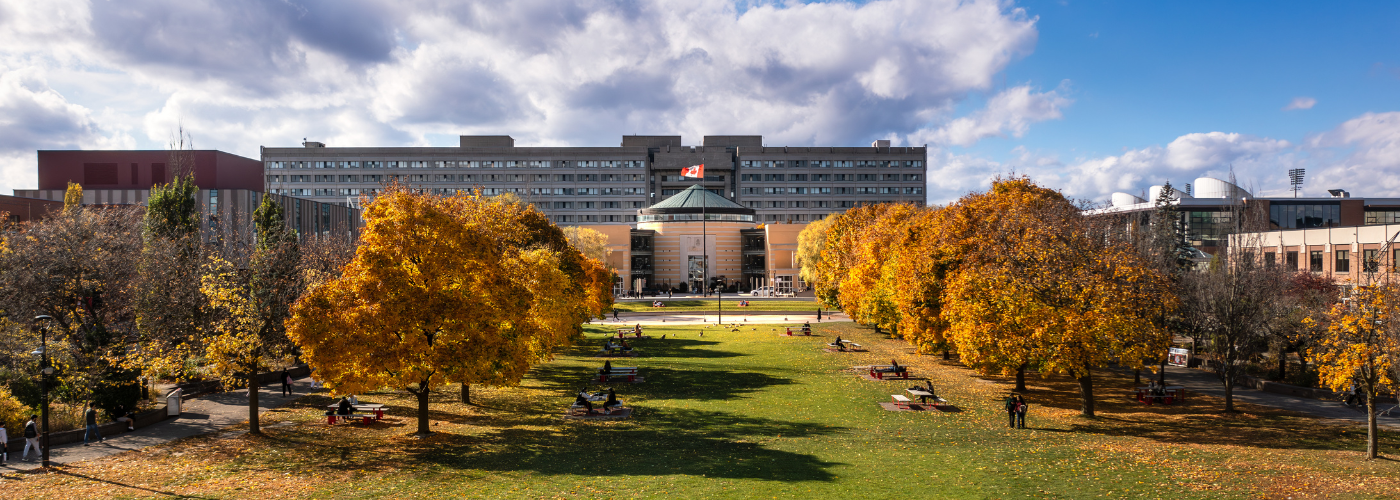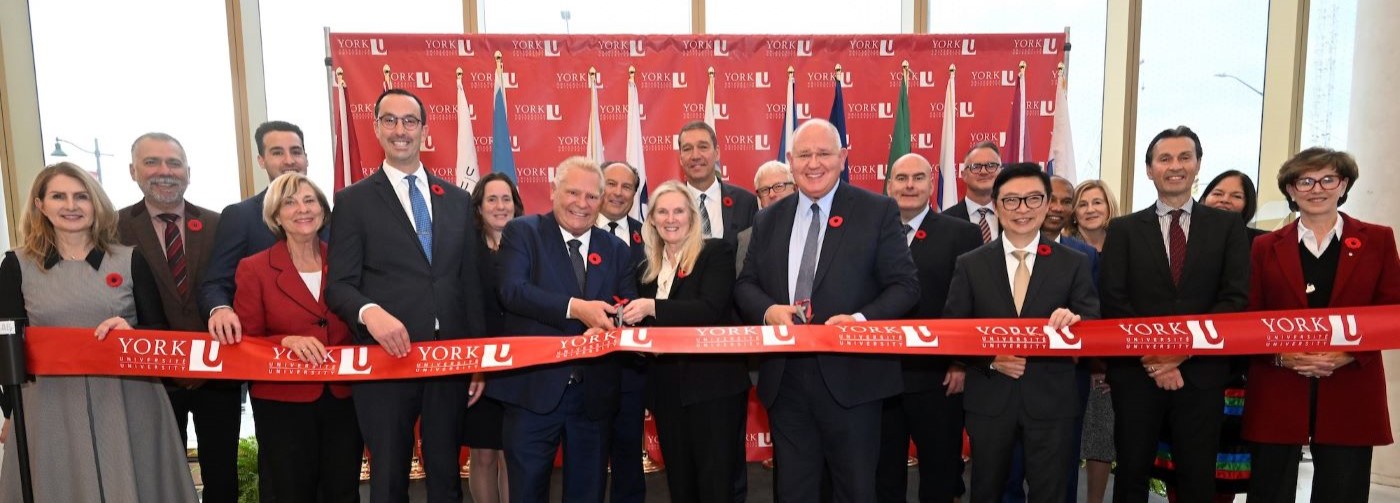
Experts from the Department of Cinema & Media Arts available to comment on TIFF
Areas of expertise range from experimental film to documentary, sci-fi and romcoms, animals in film, and the moviegoing experience
The 49th annual Toronto International Film Festival (TIFF), running Sept. 5 through 15, features a dynamic lineup of 278 films. Programs like Wavelengths, dedicated to experimental and avant-garde short and feature-length films that challenge traditional cinematic forms; Centrepiece, featuring works from mid-career filmmakers with a strong focus on artist-driven storytelling; Midnight Madness, which showcases genre films that push the limits of horror, fantasy, action, and the strange; and others like Short Cuts and Discovery combine to make TIFF a celebration of creative freedom and cinematic exploration.
For commentary on programming and films screening throughout the festival, several distinguished voices from York University’s Department of Cinema & Media Arts at the School of the Arts, Media, Performance & Design are available:
Sarah Bay-Cheng (she/they) is the Dean of the School of the Arts, Media, Performance and Design and a professor of theatre and performance studies. She is an expert on film, theatre and new technologies, including digital media in performance which is the subject of three of her books. She has written more than 50 academic and popular essays.
Bay-Cheng is available to comment on the impact of new technologies — including AI, algorithmic discoverability and digital media — on filmmaking, the theatricalization of movies, acting, immersive performance and the impact of digital culture on audience engagement and moviegoing.

Manfred Becker is an associate professor and graduate program director for MFA film. He spent his career in cutting rooms “lying the truth” through film editing. He understands the importance of story but also its dangers if wielded improperly. In the late 1980s, after studying journalism and film, Becker worked with the National Film Board of Canada to co-edit the documentary The Journey by Academy Award-winning director Peter Watkins. Becker has written, edited and directed nearly 50 documentary films. He is the author of Creating Reality in Factual Television: The Frankenbite and other Fakes (Routledge, 2022).
Becker teaches documentary production, editing, media ethics, essay film, introduction to filmmaking, production, and writing for television. He can provide commentary on documentary, editing, ethics, narrative in fact-based media, media literacy, and German film.

Matthew I. Thompson is a visiting assistant professor who specializes in science fiction and environmental cinema. Thompson is currently working on a book with the University of Minnesota Press titled On Life Support: The Dystopian Environmentalism of 1970s Ecocinema, which uses 1970s science fiction ecocinema as a lens through which to view the early environmental movement.
Other areas of interest include Indigenous futurism, critical animal studies, and film philosophy. He is also available to discuss areas adjacent to his research such as genre cinema, North America in the 1960s and ’70s, animals on film (especially whales!), and AI.

Ingrid Veninger is tenured faculty and Director of the York U Motion Media Studio at Cinespace. Veninger has produced 15 feature films with premieres at the Toronto International Film Festival, Slamdance, Hot Docs, and the international film festivals of Rome, Whistler, Rotterdam, Locarno, Busan, and Karlovy Vary, and others. She has received retrospectives of her work at the Canadian Film Institute and FEMCine in Santiago. She is a recipient of the Women’s International Film Television Showcase (WIFTS) International Visionary Award and the Jay Scott Prize presented by the Toronto Film Critics Association.
Veninger is available to offer commentary on independent films (fiction and non-fiction), films by women, the art of screenwriting and directing, and producing.

Michael Zryd is a professor, researcher, critic and curator of experimental film and media. He is interested in the institutional infrastructures and ecologies of experimental film and its intersections with the academy and the art world. Zryd was a founding co-chair of the Society for Cinema & Media Studies Experimental Film and Media Scholarly Interest Group (ExFM). He is the author of two books on icon of the American avant-garde Hollis Frampton, as well as Moments of Perception: Experimental Film in Canada.
Zryd is available to comment on programs like Wavelengths, Short Cuts, TIFF Classics, Luminaries and select TIFF Docs and Galas premieres. He can provide commentary on experimental cinema, documentary film theory, American genre cinema (including musicals, science fiction, romantic comedies, and the Marvel and DC cinematic universes), U.S. populism in film and media, the history of cinema and media studies as a discipline, video essays and videographic criticism.
About the School of the Arts, Media, Performance and Design:
The School of the Arts, Media, Performance & Design (AMPD) at York University is a dynamic hub for creative experimentation and expression. With a commitment to cultivating artistic excellence, new ideas and entrepreneurial skills, AMPD students learn by doing with industry-leading professionals in career-focused activities. The Department of Cinema & Media Arts at AMPD offers exceptional theoretical and hands-on training across the evolving spectrum of cinema and media. From idea to screenplay, camera to screen, screen to critical inquiry, AMPD students learn to think and create in the language of the moving image across all media from faculty who are experts in their field.






